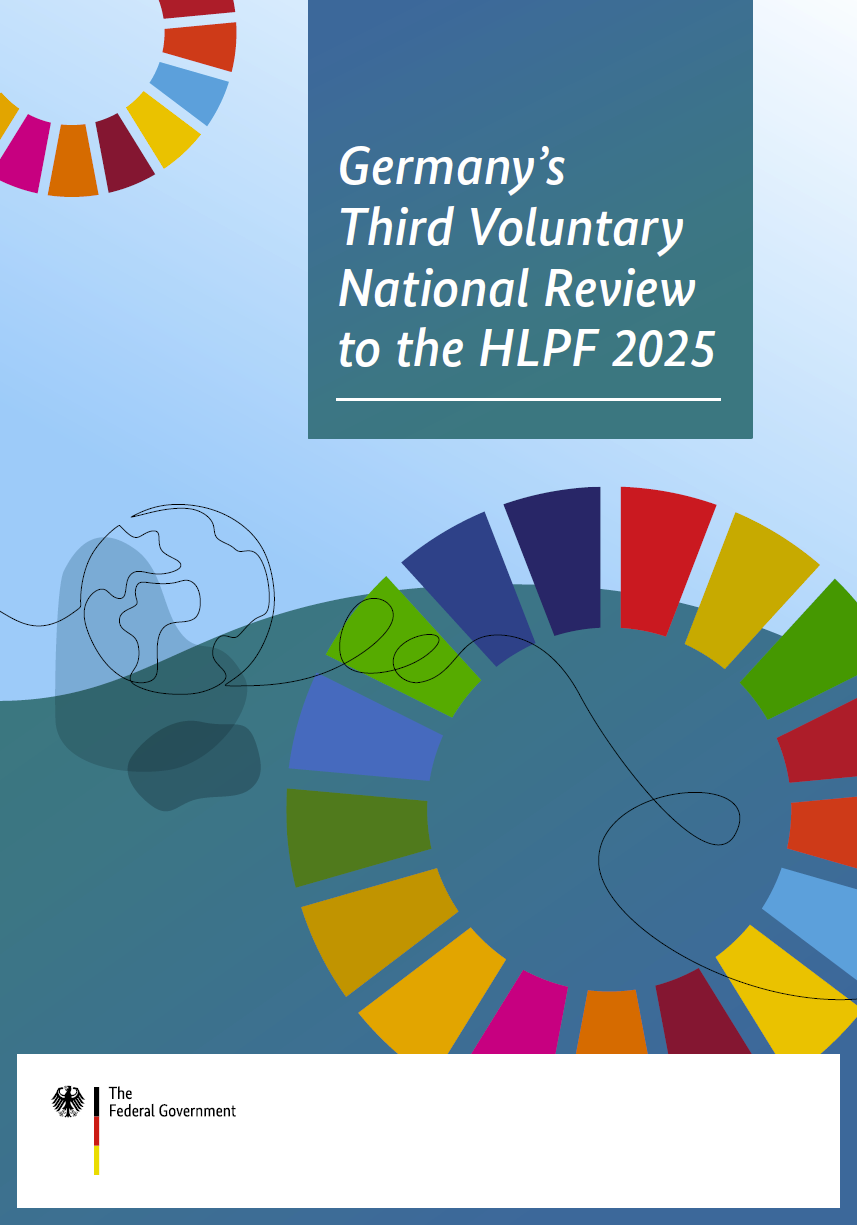High-level Political Forum on Sustainable Development in New York Germany calls for stronger international cooperation to implement the 2030 Agenda
22 July 2025 | Germany presented its third Voluntary National Review (VNR) today at the United Nations in New York. At the annual High-level Political Forum (HLPF) on Sustainable Development, representatives of governments, civil society, the scientific community and business come together to evaluate progress on implementing the 2030 Agenda. Dr Bärbel Kofler, Parliamentary State Secretary at the Federal Development Ministry (BMZ), and Rita Schwarzelühr-Sutter, her colleague from the Federal Environment Ministry (BMUKN), jointly represented the German government in New York.
The adoption of the 2030 Agenda ten years ago was a historic milestone for multilateral cooperation. Under the Agenda, the international community agreed 17 Sustainable Development Goals (SDGs) to end poverty, protect the environment and promote just, peaceful coexistence across the globe by 2030. Now the international community is striving for common solutions to reach these goals.
Dr Bärbel Kofler commented: “The international community and its efforts to achieve the 17 Sustainable Development Goals haven been thrown off track by global crises and geopolitical tensions. The United States’ almost complete withdrawal from international cooperation is worsening the situation. Yet, in such difficult times it is more important than ever that we, the international community, stand together and pull in the same direction.
Here in New York, we are discussing how we can work together more effectively under the umbrella of the United Nations in the future and what interests we share as Member States. I am here to forge alliances. Germany will continue to be a reliable partner and is strongly committed to implementing the 2030 Agenda. New York is an opportunity to pave the way for a sustainable future.”
Rita Schwarzelühr-Sutter remarked: “We are experiencing a climate crisis, species are dying out, our natural world, including our oceans, is strewn with litter – these are the global challenges we face. All countries and all people are affected. The natural foundations of our lives are at risk around the world. The 2030 Agenda shows us a way to meet these challenges together. This is why systematic and accelerated implementation of the Agenda is important. This is the key to real progress. It requires environmental innovations, climate-neutral and nature-positive economies and strong global partnerships. Only if we work together can we protect our natural resources and ensure a just, sustainable future for all. The effort is worth it.”
The HLPF is the main international forum where the global community jointly reports the progress made on the 2030 Agenda and its 17 Sustainable Development Goals. According to the Sustainable Development Goals Report 2025 from the Secretary-General of the United Nations, only around 20 percent of the goals will be met worldwide unless implementation is accelerated significantly. The impacts of climate change, wars and conflicts and economic shocks have drastically curtailed the scope and slowed the pace of progress on the SDGs.
In its now third Voluntary National Report on implementation of the 17 Sustainable Development Goals in, with and by Germany, the German delegation underscored the importance of broad public participation. The progress achieved in Germany, for example on gender equality (SDG 5) or the expansion of renewable energy (SDG 7), was also made possible by active participation from representatives of civil society, business, the scientific community, the federal states and municipalities as well as young people. In addition to Germany, 36 other countries are also presenting their Voluntary National Reports this year.
As in previous years, the German government also hosted a side event. This year’s event was titled “Unlocking the Power of the Ocean: Turning the Tide” and featured discussion among scientists, civil society activists and ministers about improved protection for the world’s oceans (SDG 14) and the impacts on decent work and sustainable economic growth (SDG 8), such as in the maritime sector. In the Global Biodiversity Framework, the international community agreed to protect a total of 30 percent of the world’s marine surface area by 2030. To date, marine protected areas cover only 10 percent of this area, meaning the international community is still far from the target. At the side event, approaches for mobilising more resources and accelerating progress such as the Blue Action Fund (co-initiated by Germany) were discussed.
This year, the HLPF was held under the header “Advancing sustainable, inclusive, science- and evidence-based solutions for the 2030 Agenda and its SDGs for leaving no one behind”. The German Voluntary National Report (External link) builds on the German Sustainable Development Strategy (External link).
